I recently had the profound honor of presenting at the Harvard School of Engineering, sharing ROSE—the revolutionary caregiver robot we are developing at Prosperous Robotics. It was a humbling and exhilarating experience to stand before such an intelligent group of innovators, all united by the goal of using technology to make a difference in the world.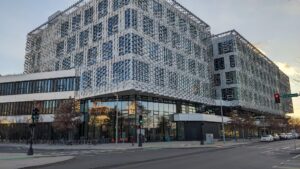
The focus of my presentation was on how ROSE has the potential to dramatically improve the quality of life for veterans, elderly individuals, and people living with disabilities—not just in the U.S., but globally. This is more than just a technological pursuit; it’s about addressing one of the most urgent and overlooked challenges of our time: the caregiving crisis.
The Impending Caregiving Crisis
We are facing a demographic shift unlike any seen in human history. The number of older adults requiring care is rapidly increasing, while the number of younger people willing and able to provide that care continues to decline. This imbalance creates a gap in care delivery that leaves families scrambling for solutions.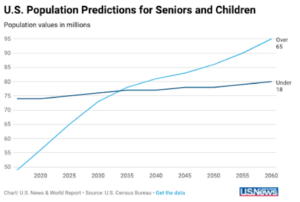
For many, caregiving responsibilities fall to family members—a daunting task in today’s world where family dynamics have shifted significantly over the last half-century. We now have a “sandwich generation” caught between caring for their children and their aging parents, often without the necessary resources or support.
This crisis is why innovations like ROSE are so critical. With fewer young people entering caregiving professions, we must look to technology to fill the gap. ROSE is designed to not only support families but also ensure that older adults can maintain dignity, independence, and quality of life.
Finding the Right Team
One of the key takeaways from my Harvard presentation was a realization that it takes a special kind of engineer to innovate for the aging population. It’s not just about technical skills; it’s about passion, empathy, and lived experience. Many of the engineers I’ve resonated with on this project share a personal connection to caregiving—whether their mother was a nurse or they had a close relationship with a grandparent.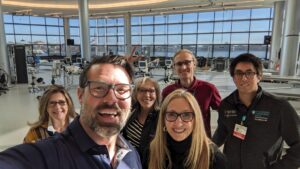
At Prosperous Robotics, this is now a cornerstone of how we build our team. We’re looking for engineers, innovators, and entrepreneurs with not only the skills but the compassion and drive to create meaningful solutions for the elderly. These are the people who will help shape the future of caregiving and make a lasting impact on society.
A Visit to Spaulding Rehabilitation Hospital
While in Boston, I also had the privilege of visiting Spaulding Rehabilitation Hospital. I truly believe I could spend all day there, just in the lobby, watching people walk. The energy that flows through Spaulding is palpable—each step taken by patients is a testament to willpower, determination, and aggressive dedication toward recovery. Observing the variety of gaits, challenges, and triumphs was an incredibly humbling experience.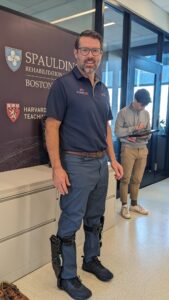
I want to express my deepest gratitude to Paolo and his team at the Spaulding Lab for their exceptional presentations and groundbreaking work on improving gait analysis and mobility across the world. Their commitment to advancing rehabilitation is not only inspiring but also vital to the work we’re doing with ROSE.
Moving Forward
As we work toward submitting our full proposal to ARPA-H and strengthening our collaboration with VHA Innovation and academic institutions, I am more optimistic than ever about the future of caregiving. We’re not only creating technology to improve lives; we’re building a movement to inspire others to care for our aging population with the dignity and compassion they deserve.
The Harvard presentation reinforced my belief that these innovations are not just products—they are lifelines for families, veterans, and the elderly. They represent a chance to combat the caregiving crisis head-on, with scalable solutions that meet the growing demand for care.
I am incredibly grateful for the opportunity to share ROSE’s story with such a brilliant audience and for the connections and insights gained during my time at Harvard and Spaulding Rehabilitation Hospital. Together, we can make a difference—not just in the lives of those who need care, but in the lives of those who care enough to innovate for them.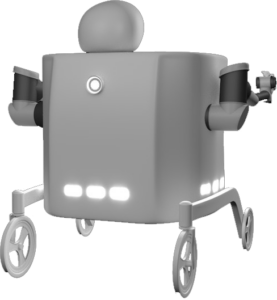
The golden age of caregiving innovation is here, and I am excited to be part of this journey. Thank you, Harvard and Spaulding, for being platforms for these transformative conversations. Let’s continue to build a future where technology and compassion go hand in hand.

